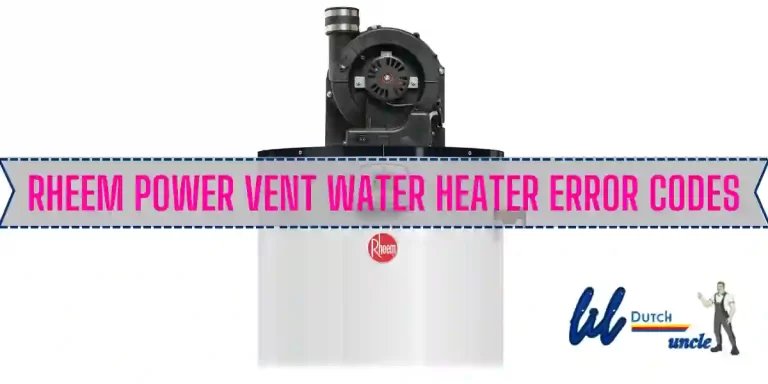
Think of your water heater as the heart of your home’s hot water system. It tirelessly pumps out warm water for showers, dishwashing, and laundry. But just like any hard-working appliance, it can run into issues. The “Le” error code is a signal that something isn’t quite right, typically indicating a leak. Though the code itself might sound technical, it’s essentially your water heater’s way of saying, “Hey, I need some attention!”
Understanding the “Le” Error Code
So, what exactly is this “Le” error code? Simply put, it’s the water heater’s way of alerting you to a leak detection issue. It’s like a smoke alarm for your water heater—only instead of smoke, it’s signaling water where it shouldn’t be. This error code generally pops up on newer models equipped with advanced diagnostic systems.
Here’s the deal: water heaters equipped with leak sensors are designed to detect any water leakage within the system. When the sensor picks up moisture, it triggers the “Le” error code. This is a preventative measure, ensuring you’re aware of a potential issue before it becomes a full-blown problem. If left unchecked, even a minor leak can lead to significant water damage, mold growth, or even a malfunctioning heater.
It’s crucial to take this code seriously, but don’t panic! While it does indicate a leak, it might not necessarily mean you’ll have to replace your entire unit. Often, addressing the source of the leak or conducting a simple fix can solve the problem. So, what causes these leaks? Let’s dive deeper.
Common Causes of the “Le” Error Code
The “Le” error isn’t just a random code—it points to something specific happening within your system. One of the most common causes is a faulty or worn-out gasket. Imagine a gasket as a tight seal, much like the lid on a jar. If this seal wears out or is damaged, it can allow water to escape, triggering the error code.
Another potential culprit is a cracked or damaged water tank. Picture this as a hairline fracture in a vase—initially, it might just seep a little water, but over time, it can worsen. Tank damage can occur due to age, corrosion, or physical impact. If your water heater is older, it may be more susceptible to this kind of wear and tear.
Lastly, improper installation or maintenance can also lead to leaks. Think of this as putting together a puzzle. If one piece is out of place, the whole picture doesn’t come together properly. Incorrectly installed components or infrequent maintenance can cause leaks to develop over time. This is why it’s always a good idea to have your water heater serviced by a professional.
Next Steps and Solutions
Alright, so you’ve got this “Le” error code staring you in the face. What next? First, it’s key to pinpoint the source of the leak. Carefully inspect your water heater for any visible signs of water. Look at the connections, around the base, and any joints. If you spot a leak, you might just need to tighten a connection or replace a small part like a gasket.
If the leak seems more severe or you can’t find its origin, it might be time to call in a professional. An experienced technician can conduct a thorough inspection and recommend repairs or replacements as needed. Remember, addressing the issue sooner rather than later can save you from more costly repairs down the road.
In the meantime, consider turning off the water supply to your unit to prevent further leakage. Think of this as putting a band-aid on your problem until help arrives. Additionally, routine maintenance—like draining the tank or checking for corrosion—can extend the life of your water heater and prevent issues like these from arising in the first place.
Preventative Measures and Tips
Prevention truly is better than cure, especially with water heaters. Regular maintenance checks are your best friend in this scenario. Imagine your water heater is like a car—it needs regular oil changes and inspections to run smoothly. Scheduling annual check-ups can help catch wear and tear before it escalates into an “Le” error code.
If you live in an area with hard water, consider installing a water softener. Hard water is like sandpaper inside your tank, gradually wearing down its components. A water softener can help reduce mineral buildup, prolonging your heater’s lifespan and efficiency.
Finally, always keep an eye on your water heater’s performance. If you notice any unusual noises, inconsistent water temperatures, or leaks, address them promptly. By staying vigilant and proactive, you can ensure that your Bradford White water heater operates efficiently for years to come.
In summary, while the “Le” error code might initially seem daunting, understanding its causes and solutions can help you tackle this issue head-on. With regular maintenance and a little bit of attention, you can keep your water heater humming along happily, ensuring your home stays warm and cozy.